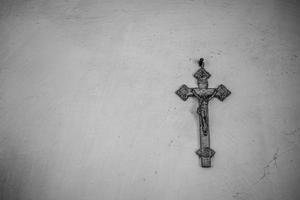Australian Bishop Hears Laity’s Concerns and Pauses School Curriculum
Bishop Vincent Long Van Nguyen paused the program ‘to provide time for further research and refinement’ after concerned parents’ campaign of dialogue with diocesan officials, prayer and peaceful protest.

Lay faithful in the Diocese of Parramatta, southeastern Australia, have successfully convinced their bishop to put on hold a controversial draft Catholic school curriculum after they expressed concerns it wasn’t grounded in the principles of Catholic doctrine, was dangerously misleading, and had glaring omissions.
In a statement released last month, the diocese said that “after significant consideration of feedback from the Church, community and experts in religious education and theology,” Bishop Vincent Long Van Nguyen of Parramatta had asked his executive director of religious education “to pause the engagement and implementation of the draft new curriculum.”
The July 20 statement added that the bishop anticipated “many of you will be surprised and disappointed with this news” but that he was “deeply thankful” to those who had devised the curriculum. He said he had decided to pause a third draft of the curriculum, called Living Life to the Full, “to provide time for further research and refinement through collaboration with local, nation and international contributors in areas of religious education, theology and scripture.”
The diocese’s executive director of Catholic education, Greg Whitby, said: “We’ve been listening to our community, and making changes based on what we’ve heard. Consider this a pause for further reflection!”
The bishop’s decision to halt the draft came after a concerted lay campaign that included praying the Rosary outside Parramatta’s St. Patrick’s Cathedral and the publication in January of a 114-page critique of the second draft of the curriculum by a religious education teacher and married father of five, Eamonn Keane.
It also came in response an eight-page letter that diocesan priest Father John Rizzo sent Bishop Long last October, explaining how much the second draft of the curriculum departed from Church doctrine. The third draft released earlier this year and which was partially implemented was reportedly even more problematic. The curriculum was due to be fully implemented in December.
This is the second time in three months that Bishop Long has amended a course of action in response to feedback from lay faithful and clergy. In May, the bishop moderated his support for gender identity after strong criticism, petitions and public protests from local Catholics over what they saw as his favorable and false approach to the homosexual agenda, especially in relation to diocesan schools.
The bishop had broken with local Christian groups to oppose a bill introduced in the New South Wales state Legislature in April that aimed to “prohibit the teaching of the ideology of gender fluidity to children in schools” and seek to ensure that schools not “usurp the role of parents.” Bishop Long and Whitby had expressed concerns that students who identify as homosexual or transgender could be harassed under the new legislation.
In his January evaluation of the diocesan curriculum, Keane detailed nine key deficiencies in the draft including insufficient treatment of Marian dogmas; no mentions of the word “magisterium,” the doctrine of Original Sin, or mortal or venial sin; and a “wholly inadequate” treatment of the sacraments of matrimony and holy orders.
In his letter last autumn to Bishop Long, Father Rizzo criticized the second draft curriculum for stating that students aged 9-10 “wonder about the interconnectivity between identity, sexuality and human flourishing” and for using language that is “ambiguous and can be read and applied in a way that promotes ideologies that are not in conformity with the Church’s teaching.”
In particular, he criticized the curriculum’s adoption of “transformative learning integrated with sexuality” — a method of learning aimed at fundamentally changing a person’s worldview that Father Rizzo said is “in favor of an anti-Catholic, anti-scientific philosophical speculation.”
He asked that the draft “remove transformational learning from the curriculum” because for Catholics “truth is not ultimately subjective, but objective, and God — not the individual — is the arbitrator of truth” and that “for a topic as important as sexuality, especially for adolescents whose minds are malleable and not yet fully developed, transformative learning poses a spiritual danger to their souls.”
Father Rizzo, who also criticized Bishop Long over his opposition to the state legislature bill in April, further pointed to other problems with the draft including “no reference to the unique gift of Catholic culture and tradition,” its use of pseudo-intellectual terms, and its “glaring omissions” of fundamental doctrines.
Keane wrote in his evaluation that it is a “form of scandal” to “jeopardize the right of young people to receive the word of faith, either by omissions or by propagation of false doctrine in a curriculum document, or by having public dissenters lecture teachers on questions of moral and sacramental doctrine” and so called the draft curriculum “wholly inadequate” and “should be abandoned.”
Bishop Long stressed the importance of engaging with those on the margins of society in an April 25 homily, leading concerned lay faithful to hope that such a dialogue would extend to them.
















